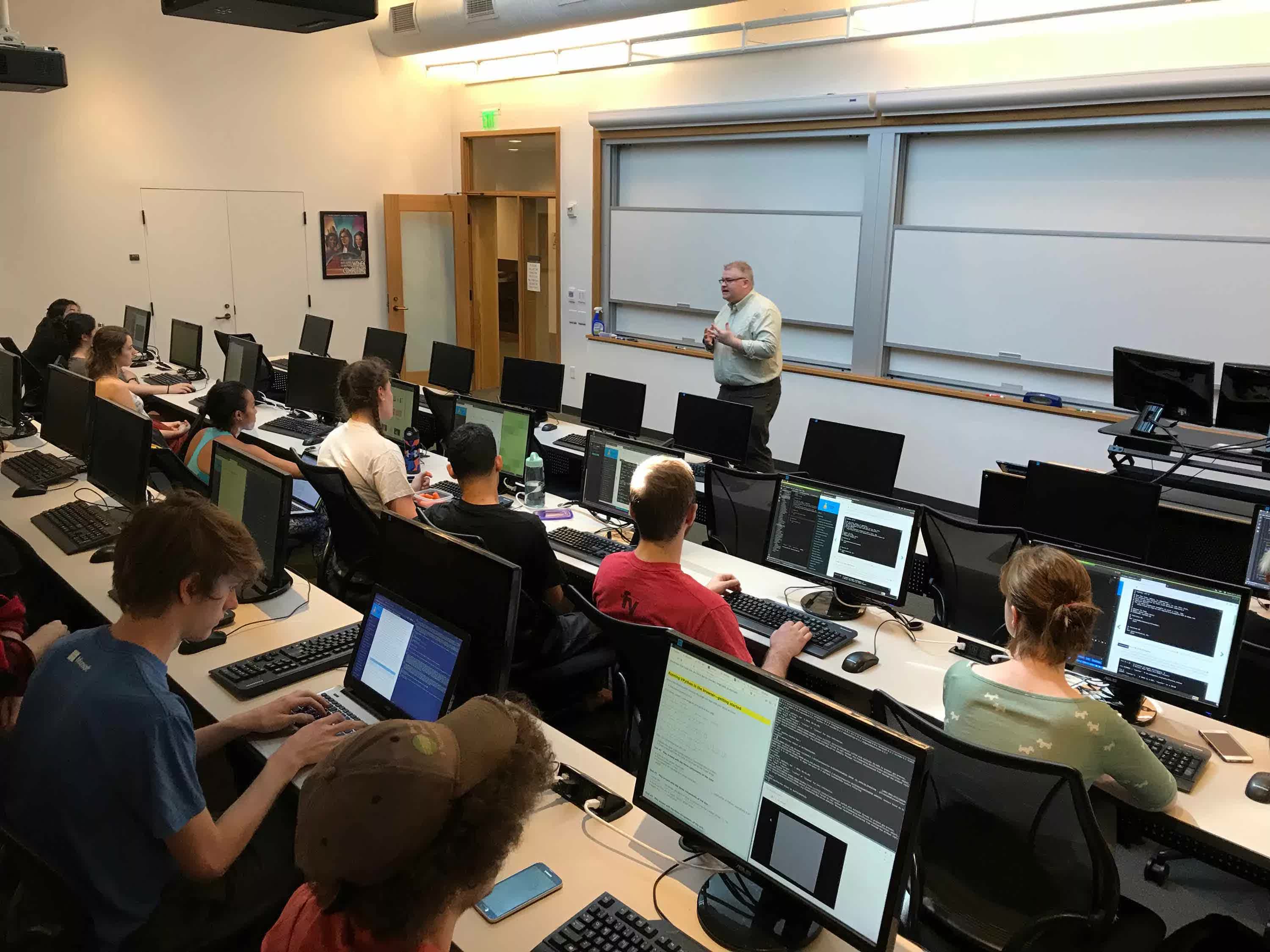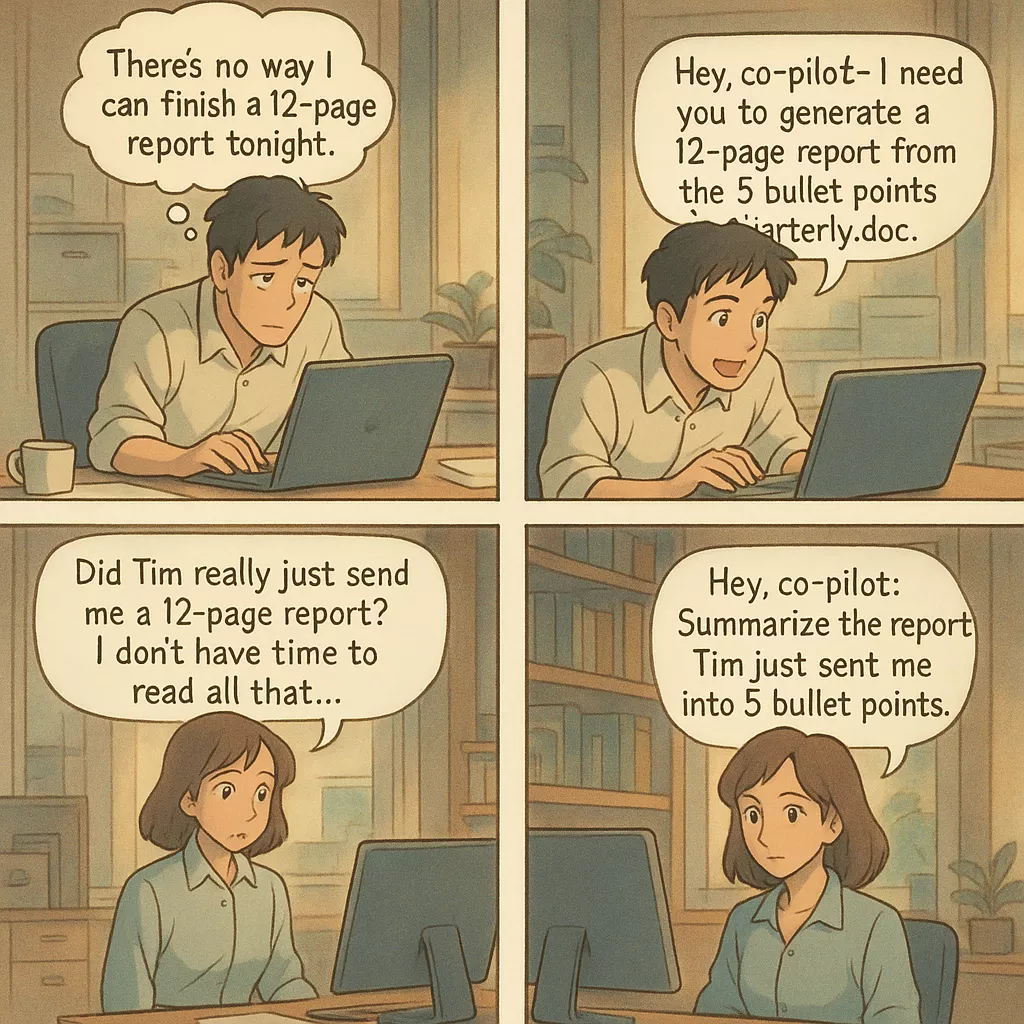A hot potato: Recent reports suggest that students' use of generative AI to cheat on school assignments is approaching endemic levels. While many worry that tools like ChatGPT erode young people's critical thinking skills, some students have also caught teachers using the same tools, often with unsatisfactory results.
The New York Times writes that a Northeastern University student recently filed a formal complaint with the college after discovering that one of her professors used ChatGPT to generate lecture notes and presentation slides. Accusing the professor of hypocrisy for banning students from using the generative AI tool, she demanded the school refund her roughly $8,000 in tuition fees for the course.
While a senior at the university, Ella Stapleton noticed that one of her professors accidentally left instructions to ChatGPT within class lecture notes. Midway through the text was a command to "expand on all areas. Be more detailed and specific," followed by a bullet-pointed list.
The mistake prompted Stapleton to examine the professor's presentation slides, where she found telltale mistakes typical of GenAI: obvious typos, distorted text, and inaccurate images of body parts. Although she didn't get her money back following graduation, the incident prompted Stapleton's professor to re-examine his materials, realizing that he should've scrutinized ChatGPT's results more closely.
Credit: Necessary-Drummer800
Northeastern University still allows generative AI, but the institution's newly adopted policy mandates that users clearly label GenAI output and proofread it for hallucinations. Meanwhile, another student transferred from Southern New Hampshire University last fall after two professors there accidentally left ChatGPT prompts in comments on her essays. She suspected the teachers weren't even reading her work, though one professor denied the accusation.
Although these incidents reveal that educators are increasingly using GenAI to grade students, sometimes clumsily, attention has recently turned toward students who use the technology. Reports and teacher complaints suggest that growing numbers of high school and college students use GenAI to cheat on nearly every assignment, and educators can't stop them.
New York magazine recently reported that, in some surveys, most students reported using ChatGPT or other AI tools in various ways. Some simply generate outlines or request suggestions for topics to write about, but many copy and paste assignment instructions into chatbot windows and submit the output to teachers. Sometimes, students rewrite or add their own words to AI-generated responses, but professors grading the material often find words such as "As an AI, I am instructed," indicating that students turned it in without reading it.
This woman teaches 10th grade high school in America
– Wall Street Apes (@WallStreetApes) May 12, 2025
She's leaving the profession. She says kids can no longer read proficiently, they won't pay attention, won't listen to authority, they don't think the Declaration of Independence is important, they're writing their papers with… pic.twitter.com/q4tM8eKZ9c
Since OpenAI launched ChatGPT in late 2022, educators have increasingly encountered tell-tale signs of generative AI in students' work: overly smooth grammar, obvious factual inaccuracies, and certain prevalent words. One student in Utah said, "College is just how well I can use ChatGPT at this point." Another student acknowledged that using GenAI can weaken students' critical thinking skills, but admitted they could no longer imagine life without the technology.
Meanwhile, a video from a 10th-grade English teacher (above) raising alarms over students' overreliance on AI and other tools recently went viral. In the nearly 10-minute clip, the teacher, who is quitting the profession, explained that some students struggle with reading because they are accustomed to technology reading text aloud to them. Many students use ChatGPT to answer the most basic questions and throw tantrums when asked to use pen and paper.
@melllbellle4 #stitch with @han❣️ Love her initial video, it's an incredibly important conversation. Technology is so useful in certain capacities but not when it comes to creating independent thinkers. #teachertok #teachersoftiktok #highschoolteacher #fyp #englishteacher ♬ original sound - Mel Belle 🍉
In response, another teacher claimed in the above video to have heard similar complaints from numerous educators. She explained that students in one class used AI to answer a question asking for their personal opinions on a topic, indicating that the technology is replacing their ability to form unique thoughts.
Unfortunately, although many professors assume they can detect generative AI output and hallucinations, recent data indicates otherwise. In a study at a UK university last year, professors detected only three percent of AI-generated assignments.

